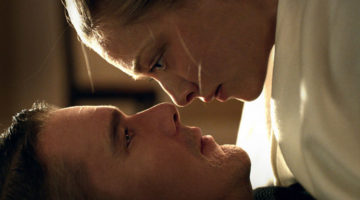Review: The Fault in Our Stars
“The world is not a wish-granting factory”, dejectedly remarks the cancer-ridden Augustus Waters (Ansel Elgort) to his star-crossed sickly lover Hazel Grace Lancaster (Shailene Woodley) near the climactic finale of The Fault in our Stars, and indeed the film adaptation does not grant the wishes of the fans of the beloved book for a steadfast copy of the source material. Nor does it grant the wishes for a film audience hoping for any sense of realism in this tale of teenagers fiercely battling cancer. It seems John Green’s cherished teenaged central characters of Augustus, Hazel, and Isaac, have had their mental and emotional complexities stripped away in the film in favor of generic Nicholas Sparks-like, one dimensional forgettable characters. One may even call the chivalrous Augustus the equivalent of the manic pixie dream girl of the film, whose only function is to charm the pants off his previously depressed wallflower lover. This isn’t to say the film is not without its merits, but it is disappointingly an ersatz reproduction of the novel from which it is adapted. The quicker the fans of the novel abandon their wishes for an unwavering version, the quicker they will be swept up in the improbable puppy romance that only occurs in sweeping weepers like this.
Much like Love Story and A Walk to Remember, the film centers on a doe-eyed, fresh-faced young female (the aforementioned Hazel Grace) whose only sign that she is dying of a fatal illness is that she’s slightly out of breath after climbing a few stairs and must therefore always lug around her oxygen tank. At the bequest of her worried mother (Laura Dern in a very credible performance), she attends a cancer support group where she meets Isaac (Nat Wolff, doing his best McLovin’ impression), a teenager about to lose his second eye to cancer, and immediately captures the heart of Augustus, whose leg was amputated in order to rid his body of cancer. During the course of the film they fight innumerable growing pains including heartbreak (Isaac’s), the fear of oblivion, a disappointing encounter with a favorite author (as played by Willem Dafoe, whose chair dance to Swedish hip-hop nearly saves the film), and, of course, the big C.
The cast, led by the luminous Woodley and Elgort, work best in the lighthearted, comedic moments that pepper the first two thirds of Josh Boone’s film, but seem unsure of themselves in the overly saccharine sentimentality of the climax. An oft-repeated line in the film, “pain deserves to be felt” is perhaps a line of advice someone should have given screenwriters Scott Neustadter and Michael H. Weber, as they clearly do not have a grasp of how the average person (let alone teenager) emotes or internalizes pain.
Thus, a line of advice for fervent fans of the book: skip the film and, instead, save your Kleenex for a night in re-reading John Green’s excellent book.
[star v=25]





